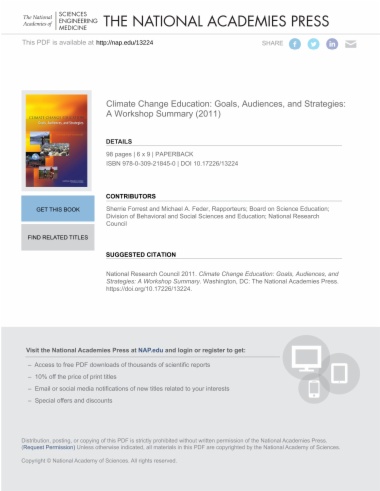

The global scientific and policy community now unequivocally accepts that human activities cause global climate change. Although information on climate change is readily available, the nation still seems unprepared or unwilling to respond effectively to climate change, due partly to a general lack of public understanding of climate change issues and opportunities for effective responses. The reality of global climate change lends increasing urgency to the need for effective education on earth system science, as well as on the human and behavioral dimensions of climate change, from broad societal action to smart energy choices at the household level.
The public's limited understanding of climate change is partly the result of four critical challenges that have slowed development and delivery of effective climate change education. As one response to these challenges, Congress, in its 2009 and 2010 appropriation process, requested that the National Science Foundation (NSF) create a program in climate change education to provide funding to external grantees to improve climate change education in the United States. To support and strengthen these education initiatives, the Board on Science Education of the National Research Council (NRC) created the Climate Change Education Roundtable. The Roundtable convened two workshops. Climate Change Education Goals, Audiences, and Strategies is a summary of the discussions and presentations from the first workshop, held October 21 and 22, 2010. This report focuses on two primary topics: public understanding and decision maker support. It should be viewed as an initial step in examining the research on climate change and applying it in specific policy circumstances.